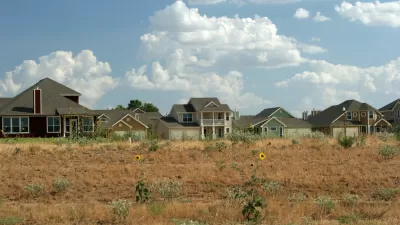This decade is likely to produce demographic news that will shock anyone born after 1850.

According to an article by Richard Fry, this decade will likely be the first since the one that began in 1850 to break this long-running trend of shrinking households. In 2010, the average U.S. household was 2.58. "In 2018 there were 2.63 people per household," writes Fry. All those figures are way down from the 5.79 people per household in 1790.
So why is American life making a shift that hasn't been witnessed since before slavery was abolished?
Households are increasing in size mathematically because the growth in the number of households is trailing population growth. The newly released data indicates that the population residing in households has grown 6% since 2010 (the smallest population growth since the 1930s), while the number of households has grown at a slower rate (4%, from 116.7 million in 2010 to 121.5 million in 2018).
According to Fry, the increasing size of households will have economic effects in the housing sector and in consumer goods like home appliances and home furnishings. "In general, it leads to a less vigorous housing sector – fewer apartment leases and home purchases, as well as less spending related to housing, such as cable company subscriptions and home accessories suppliers," according to Fry.
As for the demographic trends driving the growing American household, Fry focuses on two trends of note: a growing share of population living in multi-generational households and a growing share of Americans "doubling up" in shared living quarters.
FULL STORY: The number of people in the average U.S. household is going up for the first time in over 160 years

Maui's Vacation Rental Debate Turns Ugly
Verbal attacks, misinformation campaigns and fistfights plague a high-stakes debate to convert thousands of vacation rentals into long-term housing.

Planetizen Federal Action Tracker
A weekly monitor of how Trump’s orders and actions are impacting planners and planning in America.

Chicago’s Ghost Rails
Just beneath the surface of the modern city lie the remnants of its expansive early 20th-century streetcar system.

Bend, Oregon Zoning Reforms Prioritize Small-Scale Housing
The city altered its zoning code to allow multi-family housing and eliminated parking mandates citywide.

Amtrak Cutting Jobs, Funding to High-Speed Rail
The agency plans to cut 10 percent of its workforce and has confirmed it will not fund new high-speed rail projects.

LA Denies Basic Services to Unhoused Residents
The city has repeatedly failed to respond to requests for trash pickup at encampment sites, and eliminated a program that provided mobile showers and toilets.
Urban Design for Planners 1: Software Tools
This six-course series explores essential urban design concepts using open source software and equips planners with the tools they need to participate fully in the urban design process.
Planning for Universal Design
Learn the tools for implementing Universal Design in planning regulations.
planning NEXT
Appalachian Highlands Housing Partners
Mpact (founded as Rail~Volution)
City of Camden Redevelopment Agency
City of Astoria
City of Portland
City of Laramie




























